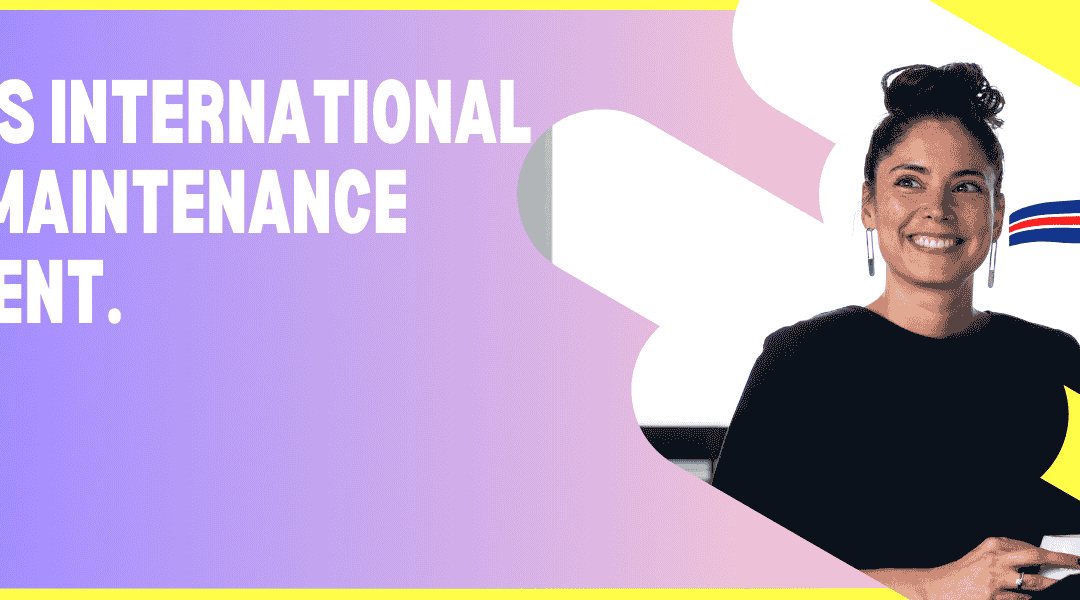In the era of big data, information is the new oil. From predicting consumer behavior to revolutionizing healthcare, data science is the engine driving the modern global economy. If you are looking to kickstart a career in this high-growth field, there is no better destination than the United Kingdom. At…

Part-time Work opportunities for International Students
Studying abroad presents a wealth of advantages, including access to top-tier education at prestigious universities, avenues for career advancement, and rich cultural experiences. However, the financial burden of living in a new country can be significant, as costs for tuition, housing, food, and other necessities can accumulate quickly. Thankfully, many popular study destinations understand the need for financial independence and allow international students to work part-time while pursuing their studies. These locations provide a variety of job opportunities both on and off campus, which can help alleviate some of the living expenses.
This article explores the countries that permit international students to work the most hours, along with the regulations associated with their part-time work permits. If you’re considering studying abroad, this information will assist you in determining whether your chosen destination aligns with your academic aspirations and financial needs. Continue reading to learn more about these accommodating part-time work policies for international students.
Top Study Destinations with High Part-Time Work Hour Limits
When selecting a study destination, it’s essential to be aware of the regulations regarding part-time employment. Each country has its own restrictions on the number of hours international students are permitted to work, both during the academic term and during breaks. Let’s explore the details for each country.
1. Australia
Part-time Work Limit: 48 hours every two weeks during semesters & unlimited hours during semester breaks
Minimum Hourly Wages: AU$24.13
Australia is a popular choice for many international students, not only because of its esteemed universities but also due to its supportive work policies. It offers the most generous part-time work hour limits for students holding a valid student visa compared to other study destinations.
Moreover, as of July 1, 2024, the minimum wage has been updated to $24.13. Students can find numerous part-time job opportunities in sectors such as retail, food service, hospitality, and healthcare.
2. Canada
Part-time Work Limit: Students can work up to 24 hours per week during academic terms and full-time during breaks such as summer and winter holidays.
Minimum Hourly Wages: CA$15 to CA$19
Canada is a popular choice for international students, and it’s easy to see why. With its outstanding education system and friendly immigration policies, it stands out as a premier destination for studying abroad.
Recently, the Canadian government has updated its policy, allowing students to work 24 hours off-campus instead of the previous limit of 20. This change aims to help fill labor shortages in important sectors, with job opportunities available as Sales Assistants, Baristas, Servers, and Dog Walkers, among others.
3. United States
Part-time Work Limit: Students may work up to 20 hours per week while classes are in session and up to 40 hours per week during breaks
Minimum Hourly Wages: Ranges from $12 to $18 per hour.
International students holding an F-1 visa are permitted to work on-campus within these specified limits during their academic terms. While off-campus work is generally not allowed, students can seek employment through Curricular Practical Training (CPT) or Optional Practical Training (OPT), which can enable full-time work under certain conditions.
While on-campus job options may appear limited, they often encompass roles such as teaching assistants, library aides, and research assistants, which not only provide financial support but also help in developing valuable skills.
3. United Kingdom
Part-time Work Limit: Students can work up to 20 hours per week during academic terms and 40 hours during holiday breaks
Minimum Hourly Wages: For those aged 21 and older, the minimum wage is £11.44; for students aged 18 to 20, it is £8.60; and for those under 18, it is £6.40.
The UK provides a dynamic student life, offering various opportunities to earn while studying. International students enrolled in degree programs or higher can benefit from competitive hourly wages, making it a popular choice for studying abroad.
Common part-time job positions include Customer Service Representative, Sales Assistant, Warehouse Worker, Retail Worker, Tutor, Babysitter, and Translator.
4. New Zealand
Part-time Work Limit: Students are permitted to work 20 hours per week during academic sessions and can work full-time during breaks. Those pursuing a Master’s by Research or a PhD have the option to work full-time throughout their studies.
Minimum Hourly Wages: The starting wage is NZ$23.15.
New Zealand combines high-quality education with a fulfilling lifestyle. International students have access to a variety of part-time job opportunities across different sectors during their studies. In addition to on-campus roles, students can also consider positions such as Tutors, Delivery Drivers, Baristas, Retail Assistants, and Receptionists
5. Germany
Part-time Work Limit: Students can work up to 20 hours per week during the academic term, which translates to 120 full days or 240 half days annually.
Minimum Hourly Wages: he starting wage is €12.41, with an increase to €12.82 expected at the start of 2025.
Germany stands out as a leader in both education and job opportunities. During semester breaks, international students have the chance to work full-time, up to 40 hours a week. One of the significant benefits of studying in Germany is the relatively low tuition fees, which help ease financial burdens. Additionally, the thriving job market offers numerous part-time employment options.
6. Ireland
Part-time Work Limit: Students are allowed to work 20 hours per week during the academic year and can increase this to 40 hours per week during official semester breaks.
Minimum Hourly Wages: The minimum wage begins at €12.70 for students over 20 years old, with a planned increase to €13.50 per hour starting January 1, 2025.
Ireland is recognized as a top study destination in Europe, particularly known for its vibrant tech and pharmaceutical industries. The country offers excellent part-time job opportunities for students throughout their studies. Common roles include tutoring, administrative assistance, call center positions, retail jobs, and work in restaurants or cafes, all of which have a high demand in Ireland.
Understanding your potential earnings is crucial, and with the hourly wage range for part-time jobs overseas, you likely have a clearer picture of what to expect during your studies. It’s important to remember that these earnings can differ significantly depending on the type of job, its location, and the industry. For example, specialized positions in fields such as IT or healthcare often provide higher pay, even for part-time roles.
In conclusion, working part-time while studying abroad offers a valuable combination of financial assistance and the development of time management skills. When selecting your study destination, it’s essential to consider factors like university rankings, course options, and student visa regulations. Additionally, think about the flexibility of work hours, hourly pay rates, and the long-term career prospects that may arise after your studies.
For more details on post-study visas and finding the ideal destination, connect with our Team of Country Experts at Martiza Overseas today. As one of the top 10 Study Abroad Consultants in India, we provide thorough support to all aspiring students. Your dream destination is just a step away with Martiza Overseas’s professional guidance; we look forward to seeing you, whether virtually or in person at one of our offices!
More From This Category
Studying in the UK is about more than just a world-class degree; for most Indian students, it’s about the career that follows. However, as the 2026 landscape becomes more competitive, the strategy for landing a job has shifted. At a recent webinar at Brunel University, experts shared the "ground reality"…
In 2026, the landscape for international students has shifted, but the desire to study in UK remains as strong as ever. If you are planning your relocation, you likely know that standard Master’s (Taught) students can no longer bring their families. However, the MRes (Master of Research) remains a powerful…
When you think of studying in Europe, countries like the UK, Germany, or France may instantly come to mind. But tucked away in the eastern Mediterranean is a destination that quietly blends history, academic quality, and affordability. Cyprus has been known since ancient times for its mineral wealth, vineyards, and…
New Zealand is rapidly becoming a leading choice for students looking to study abroad for their higher education. Renowned for its high-quality, internationally recognized education system, the country also provides valuable opportunities for both personal and professional development. New Zealand’s universities offer a range of degrees, including Bachelor’s, Master’s, and…
New Zealand stands out as a premier destination for education, boasting an exceptional education system, state-of-the-art teaching facilities, and top-notch research opportunities. With all its universities ranked among the top 3% globally, students have access to some of the finest academic options available. In recent years, an increasing number of…
In recent years, Data Science has emerged as a pivotal force driving innovation across the globe. By deriving significant insights from extensive datasets, this discipline is increasingly sought after in various sectors, including Technology, Finance, Health Care, and Marketing. Pursuing a Master's in Data Science in the UK could be…
Envision contributing to a technological transformation that is altering industries and shaping the future; this is the promise of a career in Artificial Intelligence (AI). With swift progress in machine learning, robotics, and data science, AI is driving innovations from autonomous vehicles to tailored healthcare solutions. For motivated students eager…
Asia is increasingly being recognized as a powerhouse in the global financial and economic landscape. Nations such as India, China, Japan, and the UAE are at the forefront of this transformation, a fact that is widely acknowledged around the world. In the past, many sought higher education and career prospects…















